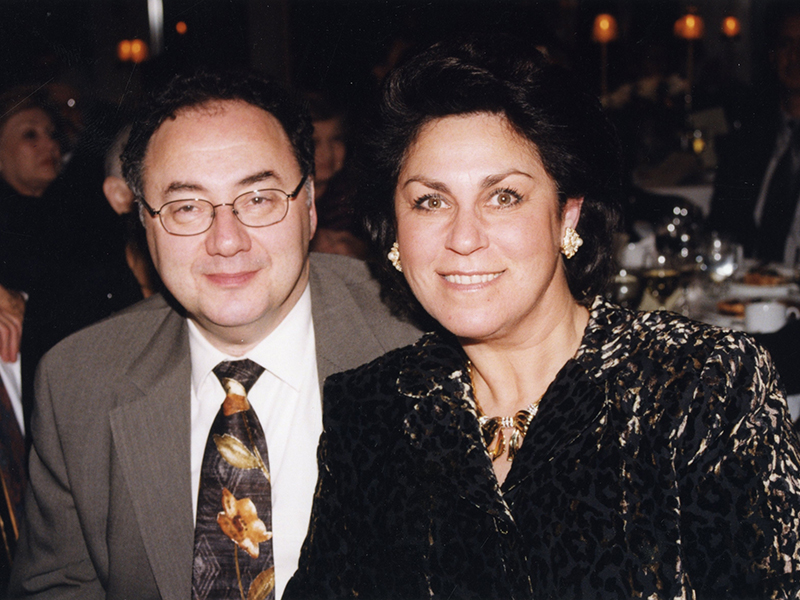The sudden deaths of Barry and Honey Sherman will haunt the Toronto Jewish community forever. Six weeks after this tragedy occurred, we know very little about what led to their deaths, but we know much about how they spent their lives.
I didn’t know either of them well. But during my time at the Canadian Jewish Congress (CJC), I worked on a number of initiatives with Honey Sherman, who was a powerhouse, with a Rolodex the size of a van and energy to spare. The daughter of Holocaust survivors, she grew up, like me, in the shadow of pain and darkness. I imagine it was her parents’ experience that shaped her into the kind and loving woman she was.
Barry Sherman was very different than his wife. He was quiet and a little rough around the edges. As he was not one to socialize, he would often be seen at functions sitting alone at a table, while Honey Sherman was off corralling potential donors, or simply gracing everyone with her smile, stories and finesse.
I did, however, get to know a side of Barry Sherman that helped explain the measure of the man.
It was 2006. My youngest son, Max, was about to have his bar mitzvah. My wife, Karyn, and I were searching for a different experience, one that would give our children a unique understanding of the world. We thus decided to have the bar mitzvah in Cuba.
When I started working with the CJC, one of the projects that fell in my lap was ensuring that Havana’s small Jewish community of 1,500 would receive its regular allotment of kosher for Passover food. Ever since the American blockade of Cuba in 1962, its only source of this food was Canada. My predecessor, the late Ben Kayfetz, started the initiative and I continued it.
Through the charitable initiative known as Maot Chittin, CJC canvassed Toronto synagogues, raising enough money to send kosher food to Havana. Working with the Cuban government was tricky, but with staff like Michael Soberman, Dani Fine and, in later years, Len Rudner, we always found a way.
READ: THE SHERMANS: AN INTERNAL ORCHARD
Surprisingly, many of our family and friends wanted to join us in Cuba. And they all wanted to do something on behalf of the needy Cuban Jewish community.
After speaking with Adela Dworin, who was then the director of the Gran Sinagoga Bet Shalom in Havana, I was told that the synagogue ran a small pharmacy and was in desperate need of supplies.
A call was placed to Barry Sherman at Apotex, the generic pharmaceuticals company that he owned. There was absolutely no hesitation on his part: he immediately got to work and gathered literally hundreds of pounds of the lifesaving medications, which he donated to the cause.
CJC staff gathered the prerequisite permissions needed to bring over the pharmaceuticals. And on a cold winter day, we drove over to Apotex and there waiting for us to ensure the hand-off went well was Barry Sherman. We thanked him profusely, but he simply shrugged it off, telling us that it was the least he could do and that he wished he could do more.
Each of our guests filled their suitcases with medications, painkillers, bandages, cleansing alcohol, gauze, ointments, tweezers, even toothpaste, mouthwash and underarm deodorants, thanks to the generosity of Apotex and Barry Sherman.
When we delivered the goods to the synagogue, the elderly pharmacist looked at the boxes as a child would behold a brand new bike. La Gran Sinagoga de Havana became the best-stocked pharmacy on the island, a legendary act of tzedakah that’s still remembered to this day.
The gift to Cuban Jewry was only a small token, in comparison to the millions of dollars that the Shermans gave to charity. But it demonstrated a precept of tzedakah that was more important: when we have that opportunity, we must do what we are able to do, in order to make other people’s lives better. Barry and Honey Sherman understood what tzedakah meant at its very core.
They will be missed. May their memories be forever a blessing.
